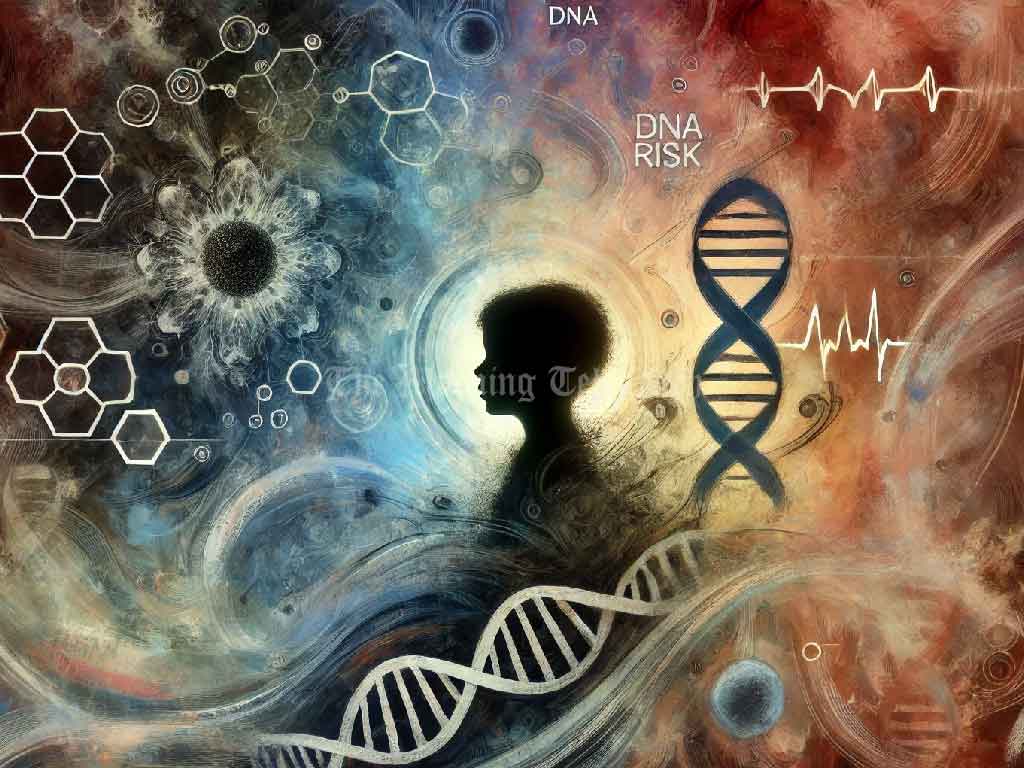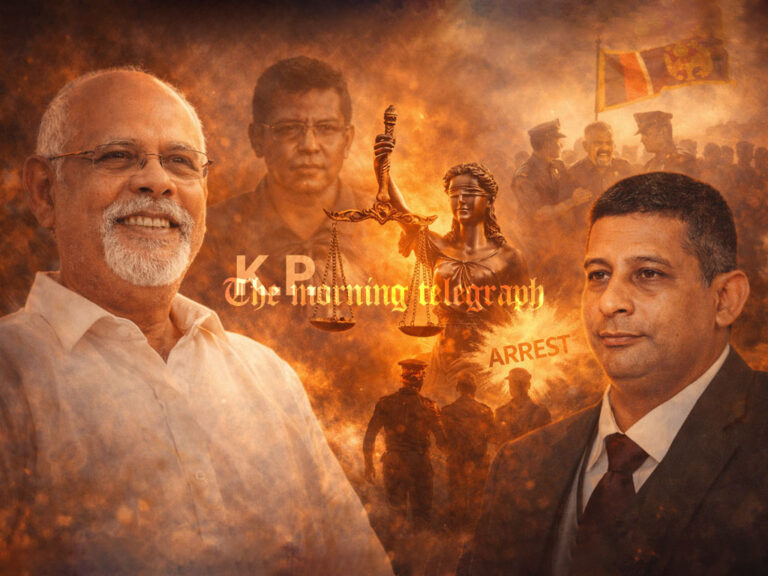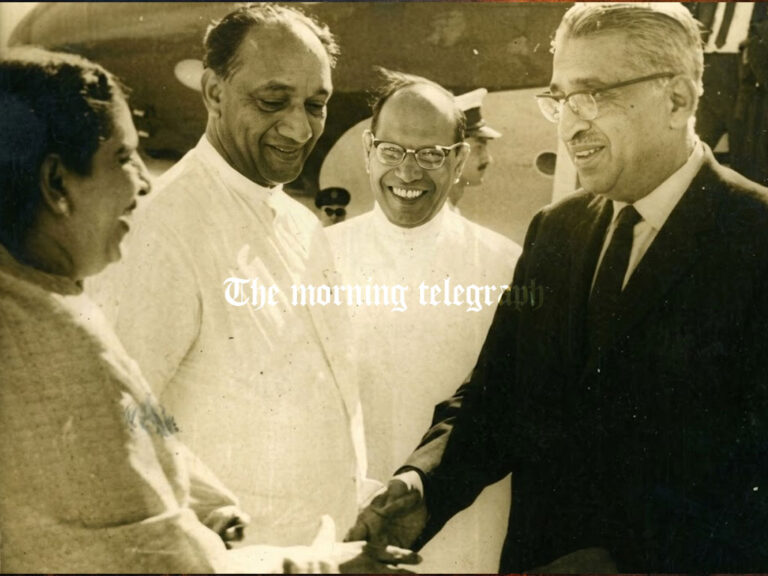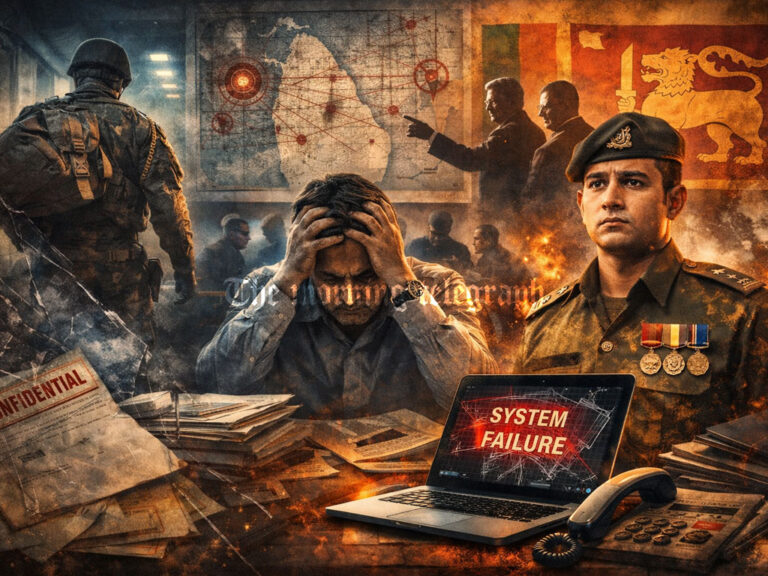
“This happened to a child who didn’t even have a fever,” said Vasana, a mother from Gampaha, recalling how her daughter was diagnosed with cancer.
After more than a year of treatment, her daughter has now fully recovered.
February 15 is International Childhood Cancer Day, a day dedicated to raising awareness of childhood cancer. Reports indicate that approximately 400,000 children worldwide are diagnosed with cancer every year. This year’s theme for the awareness campaign is “Let’s Act with Enthusiasm.”
“The Doctor Said the Baby Has Leukemia in the Bone Marrow”
According to Vasana, her daughter’s platelet count first dropped in 2021 during the COVID-19 pandemic. Despite treatment, her platelet levels continued to fluctuate.
“The doctor told us they were sending her to Ridgeway Hospital because her count was not improving.”
“We stayed at Ridgeway for 14 days, did every possible test, but nothing was found. Then they did a bone marrow test. The report came back after five days but was inconclusive, so another test was needed.”
Following these tests, Vasana’s daughter was transferred to Maharagama Apeksha Hospital for further medical examinations.
“We were taken to Dr. Mahendra Somathilaka’s ward. He told us that the child had leukemia in the bone marrow, which was an extremely dangerous condition. The doctor admitted her immediately, believing that if only six out of ten children survived, my daughter would not be one of them,” she recalled, describing the darkest moments of her life.
“There was only one child. We had waited for her for three years. When the doctors told us she had cancer, it felt like our entire world had collapsed.”
Her daughter underwent in-patient treatment at Maharagama Apeksha Hospital for almost a year.
A Full Recovery from Cancer
Although the treatment process typically consists of four stages, doctors determined that after the third stage, Vasana’s daughter had responded exceptionally well and was out of danger.
“It was like discovering an entirely new world. There was no sleep, no rest—our entire life revolved around her treatment. I never let her use a wheelchair, I carried her around the hospital myself. Even when she used the washroom, I ensured it was sanitized before she went in. Hearing that she was cured was the greatest joy of my life.”
After months of dedication, sacrifice, and unwavering love, Vasana now enjoys the fruits of her efforts. Her daughter has completely recovered, although she continues to attend regular follow-up clinics as per medical advice.
How Many Children Are Diagnosed with Cancer in Sri Lanka?
According to the National Cancer Registry, between 1,000 and 1,200 children in Sri Lanka are diagnosed with cancer every year.
The 2021 final report recorded 1,032 cases of childhood cancer, while annual childhood cancer deaths range between 200 and 250. In 2019, the Registrar General’s Department reported 220 childhood cancer deaths.
Why Is Childhood Cancer Different?
Dr. Mahendra Somathilaka, a pediatric oncologist, explained that childhood cancer behaves very differently from adult cancers.
“The way cancer functions in children is different from how it develops in adults. The types of cancer that occur in young children are also different from those seen in adults.”
He stated that children most commonly develop cancers related to the blood, brain, and bones, but they also have a higher chance of recovery compared to adults.
What Causes Childhood Cancer?
According to current global research, there is no definitive scientific evidence that environmental or dietary factors directly cause cancer in children. However, this does not mean that such factors do not contribute at all.
Even if a person consumes food containing carcinogens, it typically takes decades for cancer to develop.
“It takes about 20 years for harmful substances to affect the body significantly, so childhood is usually over by the time these toxins manifest as cancer.”
While there is a very small chance of hereditary cancer, pediatric oncologists emphasize that most childhood cancers occur randomly and are not passed down through generations.
Are There Early Signs of Cancer in Children?
Dr. Somathilaka explained that there are no permanent or definitive symptoms of cancer in children, as the signs vary depending on the type of cancer. However, some general warning signs include:
- Frequent fevers
- Persistent colds
- Infections that don’t heal
- Skin lesions
- Spontaneous bleeding
- Growth retardation
Since these symptoms are also common in many non-cancerous illnesses, diagnosing childhood cancer requires specialized medical tests.
“There are no obvious symptoms that can directly indicate cancer. The signs are often very general and vague, which is why testing is necessary.”
Does Cancer Treatment Have Long-Term Effects on Children?
When asked about the long-term effects of cancer treatment on children, Dr. Somathilaka explained that pediatric treatments are designed to minimize harm while ensuring long-term survival.
“Since young children have their whole lives ahead of them, treatments are planned carefully to allow them to lead normal lives, even if there are some side effects.”
While complications may arise depending on the type of cancer and individual responses to treatment, he reassured that most cases can be managed effectively.
“They Are Truly Like Gods”
Vasana’s daughter, now a 13-year-old student, has overcome her battle with cancer and is living a normal, healthy life.
Reflecting on the journey, Vasana expressed eternal gratitude to the doctors, particularly Dr. Mahendra Somathilaka, and the hospital staff who saved hear daughter’s life.
“They are truly like gods. I will always be indebted to them for what they did, even for the smallest words of encouragement.”
SOURCE :- BBC SINHALA




